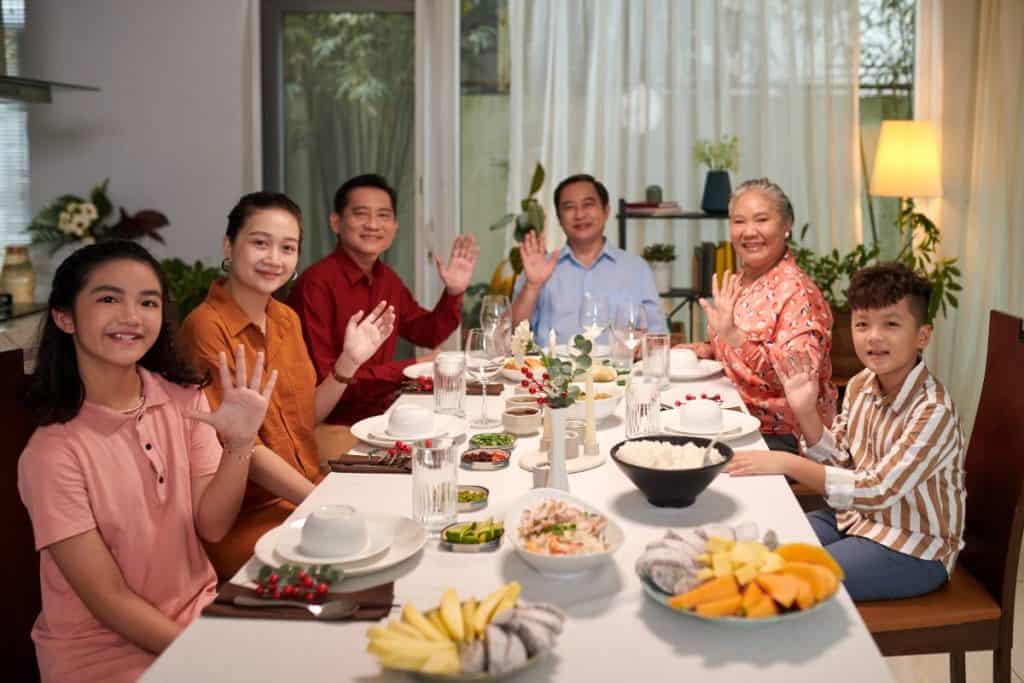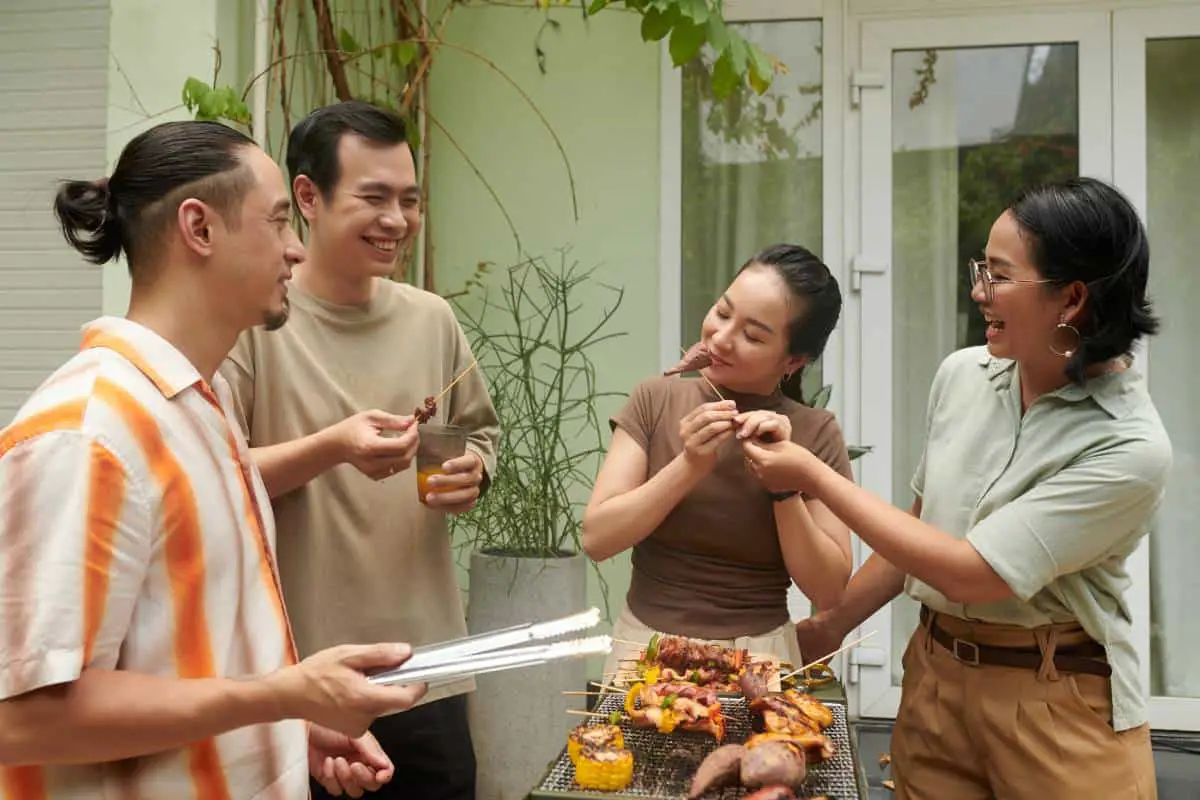Community Harmony: Building Relationships With Thai Neighbors
Building relationships with Thai neighbors can feel like learning a new dance – sometimes you step forward when you should step back, but that’s all part of the journey. As an expat who’s experienced both the challenges and joys of becoming part of a Thai community, I understand the delicate balance of adapting to Local customs in Thailand is deeply rooted in the country’s history and influences interactions among Thais. while staying true to yourself. Whether you’re new to Thailand or looking to deepen your community connections, this guide shares practical insights on creating genuine relationships with your Thai neighbors.
Key Takeaways
- Understanding Thai cultural norms and practicing non-confrontational approaches is essential for neighborhood harmony
- Building relationships through community participation and proper social etiquette creates lasting connections
- Respecting traditional values and adapting to local customs while maintaining personal boundaries leads to successful integration
Understanding the Thai Social Framework
When I first moved to my neighborhood in Thailand, I quickly realized that my American approach to neighborly relationships needed a complete overhaul. The concept of greng jai – a deep consideration for others’ feelings – shapes every interaction here.
Let me share a personal example: During my first month, I approached my neighbor directly about their dog’s barking, as I would have done in the States. The uncomfortable silence and forced smile I received taught me my first lesson in Thai cultural sensitivity.
Here’s what I’ve learned about the fundamental aspects of Thai social structure:
- Face-saving culture is paramount – direct confrontation rarely solves problems
- Personal space expectations differ significantly from Western norms
- Hierarchy awareness influences every social interaction
- The Buddhist mindset is an essential aspect of Thai culture and influences social relationships. plays a crucial role in daily interactions
Essential Communication Strategies
Communication styles in Thailand often puzzle Westerners. The famous Thai smile isn’t just friendliness – it’s a complex form of non-verbal communication. I remember being confused when my neighbor smiled while telling me about a problem. Now I understand it’s part of maintaining social harmony.
Key communication tips I’ve learned:
- Master the wai (traditional greeting) – proper execution shows respect
- Learn basic Thai phrases – even broken Thai earns appreciation
- Pay attention to non-verbal cues
- Practice indirect communication, a vital skill in navigating social relationships in Southeast Asia.
Building Positive Relationships
One of the most rewarding aspects of living in Thailand is creating strong bonds with Thai neighbors, something that requires consistent effort and cultural awareness. Getting involved in your local community is a fantastic way to start – consider joining local festivities, contributing to temple events, or even participating in neighborhood cleanup activities. Here’s a little tip that’s always worked wonders: sharing food! Thai people absolutely love this gesture, and it’s a wonderful way to break the ice.
Community Participation
The heart of Thai community life often revolves around local events and activities. Whether you’re helping out at a temple fair, joining in community clean-up efforts, or simply showing up for neighborhood gatherings, each interaction helps weave you into the fabric of the community. Don’t be surprised if your neighbors start treating you like family after you’ve shared a few meals together or pitched in during community events.
Social Etiquette
Understanding and respecting Thai social customs goes a long way in building lasting relationships. Always remember to remove your shoes before entering homes – it’s not just polite, it’s expected. Showing respect to elder neighbors is particularly important in Thai culture, and you’ll find that a little reverence goes a long way. Gift-giving is another beautiful aspect of Thai culture, though it’s important to maintain appropriate physical boundaries as you navigate these social customs. These small gestures of cultural awareness can make a huge difference in how warmly you’re welcomed into the community.
Seasonal and Festival Considerations
Thai festivals provide perfect opportunities for strengthening neighborhood bonds. During my first Songkran (Thai New Year), I initially stayed inside, missing valuable connection opportunities. Now, I actively participate in water festivities and merit-making ceremonies.
Important festivals for community building:
- Songkran (April)
- Loy Krathong (November)
- Buddhist Lent
- New Year celebrations
Navigating Common Challenges
Every expat faces hurdles in building neighborhood relationships. Here’s how I handle common situations:
Noise Issues: Instead of direct complaints, I’ve learned to:
- Build rapport first
- Express concerns gently
- Offer solutions indirectly
- Use a mutual friend as mediator if needed
Property Matters:
- Discuss boundaries diplomatically
- Show flexibility when possible
- Respect local customs about shared spaces
- Address issues through community leaders when necessary

Digital and Social Media Etiquette
Using LINE App Effectively
In today’s Thailand, building connections often happens through the LINE app, which has become as essential as having a phone number. When your Thai neighbors add you on LINE, it’s important to accept their requests quickly to show you value the connection. The app has its own special language of stickers, and learning to use them appropriately can actually strengthen your relationships – think of them as digital smiles and nods.
Online Community Participation
Neighborhood LINE groups are like virtual community centers, where important announcements mix with friendly chatter. Remember to follow the same polite behavior you’d use in person, maybe even more so since messages can be shared and saved.
Maintaining Long-term Harmony
Daily Interactions
Building lasting relationships in Thailand is like tending a garden – it needs regular care and attention to flourish. Make it a habit to exchange friendly greetings with your neighbors, even if you’re just passing by. Traditional Thai values are the foundation of social life here, so taking time to understand and respect these customs will help you fit in naturally.
Personal Boundaries
While it’s great to embrace local ways of doing things, it’s also perfectly fine to maintain your own personal space and boundaries. The key is finding that sweet spot between being part of the community and staying true to yourself.
Crisis and Emergency Situations
Community Support Networks
When trouble strikes, you’ll discover the true strength of Thai communities. Whether it’s flooding, storms, or other challenges, Thai neighborhoods transform into support networks almost instantly. During difficult times, don’t hesitate to lend a helping hand – it could be as simple as sharing extra water bottles or helping move furniture to higher ground.
Emergency Response
Join in when the community organizes emergency responses; these moments of working together create bonds that last long after the crisis passes. Most importantly, keep your communication lines open during emergencies. It’s amazing how sharing updates and checking on neighbors can turn challenging times into opportunities for deeper connections.
Residential Etiquette
Garden and Outdoor Spaces
Living in Thailand means understanding different expectations about outdoor spaces. Your garden isn’t just your private space – it’s part of the neighborhood’s visual harmony. Consider growing Thai herbs that you can share with neighbors, but avoid letting plants grow wild as neat appearances matter greatly here. If you’re planning any major changes to your outdoor space, it’s thoughtful to mention it to neighbors first – not for permission, but as a courtesy that builds goodwill.
Noise and Activity Hours
Thai neighborhoods often operate on different schedules than Western ones. Early mornings are bustling with activity, while afternoons might be quieter for traditional rest periods. Understanding these rhythms helps you plan your own activities respectfully. For instance, saving your home improvements for mid-morning rather than early evening, when many families are having dinner together.
Food Sharing Culture
Kitchen Diplomacy
Food sharing goes beyond just occasional gifts in Thai culture. Learn to navigate the subtle art of food reciprocation – when someone shares food, try to return the gesture within a few days. Keep some nice food containers on hand, as Thais will likely want to return your container with something inside, often a gesture of goodwill. Remember that refusing shared food can be seen as refusing friendship, so learn polite ways to accept even if you’re not hungry.
Dietary Communication
If you have dietary restrictions, communicate them early and gently. Rather than saying “I can’t eat that,” try “I wish I could eat this but unfortunately…” This approach maintains harmony while being clear about your needs.
Security and Privacy
Neighborhood Watch Dynamics
Thai communities often have informal security networks that help maintain safety, particularly in urban areas like Bangkok. Get to know your local security guards if you have them, and understand the local emergency contact system. Many neighborhoods have LINE groups specifically for security updates – these are different from social groups and should be used appropriately.
Balancing Openness with Privacy
Learn the art of being appropriately open while maintaining privacy. Thai neighbors might be more curious about your life than you’re used to, but there are polite ways to maintain boundaries without seeming cold. For example, invite neighbors to your front garden area rather than inside your home if you prefer keeping your living space private.
Cultural Integration
Language Learning Expectations
While perfect Thai isn’t expected, showing effort to learn certain phrases is appreciated. Focus on learning greetings specific to times of day, basic food-related vocabulary, and polite particles appropriate for your age and gender. This shows respect for the culture without overwhelming yourself.
Merit-Making Participation
Understanding merit-making activities in Thailand, even if you’re not Buddhist, helps you participate appropriately in community life and social relationships. Learn about basic temple etiquette, appropriate dress for religious occasions, and how to respectfully decline participation in religious activities while showing support for community events.
Professional Relationships
Home Services Etiquette
Building good relationships with regular service providers – like gardeners, cleaners, or maintenance workers – requires understanding Thai work culture. Learn appropriate ways to give feedback, handle payment discussions, and maintain professional boundaries while being friendly.
Local Business Connections
Becoming a regular at local shops and restaurants isn’t just convenient – it’s part of community integration. Learn the art of being a valued regular customer, including appropriate tipping practices and how to handle service issues diplomatically.
Conflict Resolution
Indirect Problem Solving
Master the art of solving problems without direct confrontation. For example, if a neighbor’s tree is dropping leaves in your yard, instead of complaining, you might mention how you enjoy gardening and would be happy to help tend to trees – this opens a dialogue about garden maintenance naturally.
Mediation Channels
Understand the hierarchy of problem resolution in Thai communities. Know when to involve community leaders, when to seek help from mutual friends, and how to use formal channels like your local municipal office while maintaining relationships.

Special Occasions
Life Events
Learn appropriate responses to major life events in your neighbors’ lives. Understand funeral etiquette, wedding gift expectations, and how to participate in house blessings or other significant ceremonies. Know which events require your presence and which are optional.
Holiday Customs
Beyond major festivals, understand small but significant occasions like Chinese New Year (if your neighbors are Thai-Chinese), vegetarian festivals, or local shrine anniversaries. These events offer opportunities for deeper community integration.
FAQs
What’s the best way to make a good first impression with Thai neighbors?
Start with a proper wai greeting, bring a small gift (fruits work well), and maintain a gentle, friendly demeanor.
How do I handle noise complaints diplomatically?
Build a positive relationship first, then raise concerns indirectly through casual conversation or a mutual friend.
What’s appropriate for joining Thai religious ceremonies?
Dress modestly, observe others’ behavior, and participate respectfully without feeling obligated to perform religious acts.
How can I politely decline social invitations?
Express sincere regret and offer an alternative way to connect later. Never give a flat “no.”
What gifts are appropriate for Thai neighbors?
Food items, especially fruits or local specialties, are always welcome. Avoid overly expensive gifts that might create discomfort.
Conclusion
A genuine and welcoming relationship with your Thai neighbors is one of the most rewarding parts of living in Thailand. Remember, there’s no perfect formula – every neighborhood and relationship is unique. What matters most is your sincere effort to understand and respect the local culture while being yourself. Some days you might feel like you’ve made a misstep, but even those moments are opportunities to learn and grow within your community.
The journey of building these connections takes patience, but the rewards – from sharing simple morning greetings to being included in local celebrations – make it all worthwhile. If you have questions about navigating relationships in your Thai neighborhood, please don’t hesitate to message us. We’re here to help make your experience of Thai community life richer and more fulfilling.




![Visa Types For Thailand [Thailand Visa Application] Visa Types For Thailand](https://betterlivingasia.com/wp-content/uploads/visa-types-for-thailand-3-768x512.jpg)

